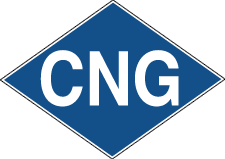Compressed Natural Gas Conversions in Lincoln, NE

What would you think if we told you that we can improve your vehicle so it will use a cleaner burning fuel than gasoline or diesel? This type of gas would also have less of a negative impact on your on your engine, meaning that your vehicle will also last longer. Sound too good to be true? Whether you can believe it or not, everything we described above is now a reality with Compressed Natural Gas (CNG).
Several major cities and airports are already employing the use of natural gas vehicles due to the extensive benefits they provide. While this may seem as though it is a brand new concept, Americans have been using natural gas in their homes for generations. Sources show that the supply of natural gas is rather expansive ensuring that it should remain fairly inexpensive for a long time.
CNG Vehicle Conversions in Lincoln, NE
The advantage of converting a vehicle to natural gas means that you do not damage or change existing catalytic converter systems. Vehicles that use natural gas and have properly tuned engines can expect to produce 20 percent lower carbon emissions and about a 25 percent reduction in greenhouse gases in comparison to the cleanest gasoline engines.
Advantages of our Digital CNG Conversion Installation
The change over from CNG/Gasoline is automatic and it happens when the engine parameters are optimal. Any adverse condition that would prevent CNG for optimal functionality, such as the CNG tank becoming empty, will result in an automatic change over to gasoline. No action is needed by the driver to make the switch.
Older CNG systems would require a “mixer” to integrate CNG with air. This would make the CNG delivery inhomogeneous this could potentially cause the engine misfire, possibly causing damage. This has since been eliminated and the CNG is now injected in the same place where the gasoline would normally go.
Our CNG system now maintains the same conditions as the manufacturer intended, your vehicle will operate under the same climate, terrain and altitude conditions as before.
When it comes to emissions and contamination, our CNG system will deliver a significant reduction in contaminants (up to 80%). This will help to extend the life of your engine components due to a much cleaner combustion that results in less wear and tear to the components for your engine that are most the vulnerable.
CNG is also 60 to 70% (on average) less expensive than gasoline
Our CNG System is Sequential
Sequential is the latest technology in CNG conversions.
The Electronic Control Unit (ECU) in your vehicle determines the timing in which the CNG injection will take place in your engine. The EDU reads the timeing injection of gasoline and, once it switches to CNG, it will advance the timing for optimal CNG combustion. Once a vehicle is converted to our sequential CNG system, the vehicle will not even realize it is running on an alternative fuel.
Are Natural Gas Vehicles Safe?
The Answer is yes, Compressed natural gas is stored on board vehicles in tanks that meet the most rigorous safety standards. This includes the Drop Test, the Bonfire Test, and the Gunshot Test.
How Long Does it Take to Fuel a Natural Gas Vehicle?
There are two types of fueling equipment used to fuel CNG vehicles: fast-fill and time-fill. Fast-fill: The combination of a large compressor coupled with a high-pressure storage tank system, called a cascade, fills the tank in about the same amount of time it takes to fuel a comparable gasoline or diesel vehicle.
The time-fill system does not have a storage system and uses a much smaller compressor. It typically refuels a CNG vehicle overnight at the rate of about one gallon per hour. The time-fill option is most suitable for vehicles that are dormant for several hours a day such as refuse trucks and school buses to name a few.
Home refueling options are also available for individuals that own a CNG powered vehicle. These units tap into the residential gas line and typically hand on a garage wall. These can fuel a single vehicle at the rate of slightly more than one gallon per hour.